Current News
/ArcaMax

Rob Reiner, 'When Harry Met Sally' director, 'All in the Family' actor and political activist, dead at 78
LOS ANGELES -- Rob Reiner, a writer, director, producer, actor and political activist whose career in Hollywood spanned more than six decades and included some of the most iconic titles in movie history, was found dead Sunday with his wife, Michele Singer Reiner, at the home they shared in Brentwood. He was 78.
“It is with profound sorrow ...Read more

Rural health providers could be collateral damage from $100K Trump visa fee
Bekki Holzkamm has been trying to hire a lab technician at a hospital in rural North Dakota since late summer.
Not one U.S. citizen has applied.
West River Health Services in Hettinger, a town of about 1,000 residents in the southwestern part of the state, has four options, and none is good.
The hospital could fork over $100,000 for the Trump...Read more
Meet the maternal health doc working to close the race gap
A year into her role seeing patients with high-risk pregnancies at Allegheny Health Network, Carmen Proctor was reflecting on the patients she's had, the questions she's answered, and the babies born under her care.
She recalled one patient who delivered twins at 22 weeks gestation and one of the babies died during delivery. The surviving baby ...Read more
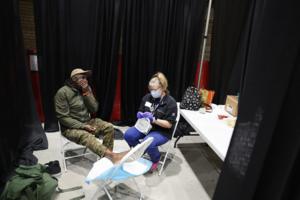
New student loan rule could dissuade people from advanced nursing degrees
Zoe Clarke became a hospital registered nurse two and a half years ago, following in the footsteps of her mother and grandmother.
Clarke, an ICU nurse in Asheville, North Carolina, wants to get her master’s degree to become a nurse practitioner or a certified registered nurse anesthetist — occupations in high demand — and eventually work...Read more

Rob Reiner, wife confirmed dead in homicide at Brentwood home; police interview family member
Longtime Hollywood star Rob Reiner and his wife were found dead at their Brentwood home Sunday in what police are describing as an apparent homicide.
A spokesperson for the Reiner family confirmed the deaths Sunday evening.
“It is with profound sorrow that we announce the tragic passing of Michele and Rob Reiner,” the family spokesperson ...Read more
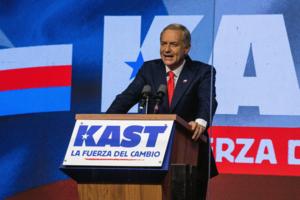
Kast's landslide win propels Chile into US-led conservative orbit
Ultra-conservative José Antonio Kast won Chile’s presidency by a landslide Sunday, harnessing voter anger over crime and migration to drive the country into its most dramatic rightward shift in decades.
With nearly 100% of ballots counted, Kast received 58% of the vote, followed by leftist Jeannette Jara with 42%, according to electoral body...Read more
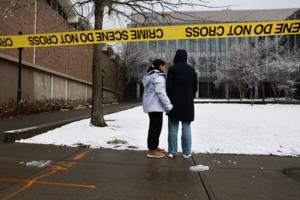
Brown University, reeling from shooting, sends students home
Brown University, mourning two students killed during a shooting rampage Saturday, sent students home and called off final exams, classes and assignments for the fall semester.
A blanket of snow covered the campus and downtown Providence, Rhode Island, on Sunday morning as the Ivy League school reeled from its first encounter with mass violence...Read more
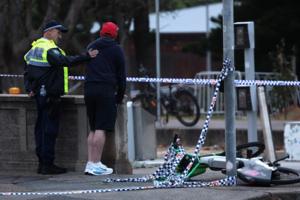
Hero bystander who tackled Bondi gunman praised by Trump, Ackman
A bystander who rushed and disarmed one of the Bondi Beach attackers has won praise from leaders around the world, including U.S. President Donald Trump and hedge fund billionaire Bill Ackman, who announced a reward program for community heroes.
Extraordinary footage of the civilian’s actions began circulating on social media on Sunday, ...Read more
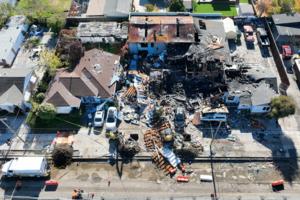
NTSB investigation: pipeline that exploded near Hayward installed in 1940s
ASHLAND — The natural gas pipeline that exploded Thursday morning near Hayward was installed in the 1940s and was damaged during recent road construction work, according to a National Transportation Safety Board preliminary investigation.
The findings come just days after a line carrying natural gas line that was inadvertently cut and in the ...Read more

Highly Pathogenic Avian Influenza Found in Wisconsin Dairy Herd
A highly pathogenic avian influenza was found in a herd of dairy cattle in Wisconsin, the latest in an ongoing outbreak of the disease, the U.S. Department of Agriculture said Sunday.
The disease was confirmed through routine milk testing, the federal agency said in a statement. It is the first known case of HPAI in dairy cattle in Wisconsin. ...Read more

Two found dead at home of Rob Reiner
Two people were found dead Sunday afternoon at the Brentwood home of director and actor Rob Reiner, multiple law enforcement sources confirmed.
Margaret Stewart, a Los Angeles Fire Department spokesman, said the department was called to the home around 3:30 p.m. for medical aid. Inside the home in the 200 block of Chadbourne Avenue, ...Read more
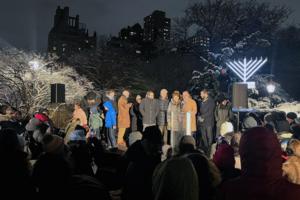
NYC Jewish community responds at Manhattan synagogue to deadly Bondi Beach terror attack
Members of New York City’s Jewish community lit candles during a vigil in Manhattan Sunday evening in remembrance of the 15 people killed in a mass shooting at a menorah-lighting ceremony on Australia’s Bondi Beach, with some attendees recounting that they had relatives caught in the attack half a world away.
“We’re all reeling. Our ...Read more

Police investigate apparent homicide at home of Rob Reiner after 2 are found dead
Los Angeles police are investigating an apparent homicide at the Brentwood home of Rob Reiner, where two people were found dead Sunday afternoon.
The bodies of a 78-year-old man and a 65-year-old woman were found the home in the 200 block of Chadbourne Avenue, according to Police Capt. Mike Bland.
Law enforcement sources confirmed to The Times...Read more

Brown University community holds vigil to mourn victims of shooting
PROVIDENCE, RI — Bundled against the cold and snow and holding candles, the crowd came together in Lippitt Park to hold a vigil for two students killed and nine others injured in a shooting at Brown University 24 hours earlier.
The vigil was a culmination of a day of mourning on campus and in a city that only had two other homicides this year...Read more

Minneapolis rally demands ICE off post office land; Ilhan Omar says agents pulled over son
Postal workers rallied Sunday outside the Lake Street post office in south Minneapolis, calling on Immigration and Customs Enforcement to stop using postal property as a staging ground for enforcement operations.
Members of the National Association of Letter Carriers Branch 9 said ICE agents used the parking lots of two local post offices last ...Read more
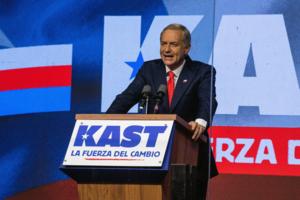
Migration and crime fears propel Chile to the right in presidential vote
Ultra-conservative José Antonio Kast was decisively elected Chile’s president Sunday, driven by growing fears of crime and uncontrolled migration — making it the latest Latin America nation to take a hard turn to the right.
With 83.4% of ballots counted, Kast received about 59% of the vote, followed by leftist Jeannette Jara with 41%, ...Read more
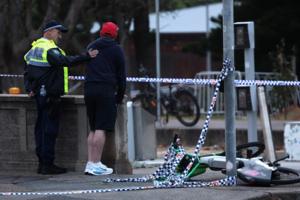
'From Sydney to Baltimore': Maryland Jews react to Hanukkah terror attack in Australia
Maryland politicians condemned antisemitism while Jewish community leaders vowed to continue “spreading light” after a terrorist attack on Australians celebrating Hanukkah left at least 15 people dead and dozens injured on Sunday, the first day of Judaism’s Festival of Lights.
“The enemies of light want us to cower in fear,” said ...Read more

Earthquake swarm resumes to rattle Northern California city, seismologists say
A swarm of at least six earthquakes reaching up to magnitude 2.9 rattled San Ramon near San Francisco, the U.S. Geological Survey reports.
The other quakes in the Saturday, Dec. 13, swarm ranged from magnitude 1.3 to 2.3, according to the USGS.
San Ramon earlier was hit by a swarm of more than 90 quakes starting Nov. 9, The Sacramento Bee ...Read more

Trump vows 'big damage' after attack on US troops in Syria
President Donald Trump signaled Sunday the U.S. will do “big damage” to the militants behind a deadly attack on American forces in Syria that he blamed on the Islamic State.
Trump’s comment amplified his vow to inflict “serious retaliation” after two U.S. Army soldiers and a U.S. interpreter were killed in the attack Saturday in the ...Read more

State officials meet to discuss sewage crisis. Residents want solutions. 'Don't talk about it; help us.'
Avery Korkorowitz said she’s been recovering from a recent asthma attack that lasted three days.
“I couldn’t breathe, I was gasping constantly,” said Korkorowitz, an Imperial Beach resident of four years. “It was terrifying. Maybe the scariest thing that’s ever happened to me.”
Speaking in Imperial Beach on Monday from her car ...Read more
Popular Stories
- Murdaugh, Susan Smith and more -- here's what some infamous SC criminals have done behind bars
- Person of interest detained over Brown University shooting
- Ancient lake from ice age comes back to life in Death Valley after record rainfall
- Some big water agencies in farming areas get water for free. Critics say that needs to end
- As California delays 'zone zero' wildfire protection rules, study finds clearing vegetation prevented home damage in LA fires





